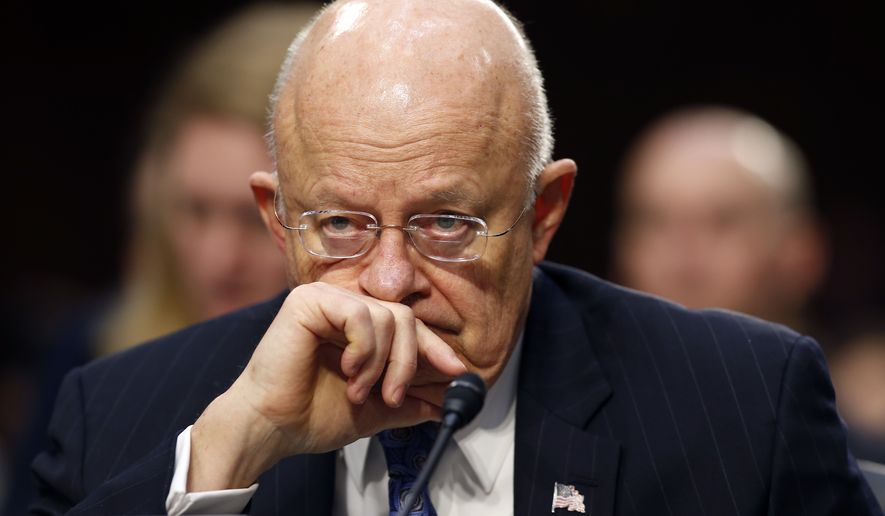Edward Snowden’s unauthorized NSA disclosures affected the government’s ability to monitor the communications of terror suspects by expediting the tech sector’s adoption of strong, hard-to-crack encryption, Director of National Intelligence James Clapper said Monday.
While digital encryption is nothing new, Mr. Clapper said during a security event in Washington, D.C., on Monday morning that Mr. Snowden’s decision to leak documents detailing the NSA’s surveillance operations — including the agency’s ability to eavesdrop on insecure communications — caused companies to embrace encryption earlier than expected.
“As a result of the Snowden revelations, the onset of commercial encryption has accelerated by seven years,” Mr. Clapper told reporters during an event hosted by Christian Science Monitor, The Intercept reported.
“The projected growth maturation and installation of commercially available encryption — what they had forecasted for seven years ahead, three years ago, was accelerated to now, because of the revelation of the leaks,” the spy chief said.
That shortened timeline, Mr. Clapper added, has had “a profound effect on our ability to collect, particularly against terrorists.”
“From our standpoint, it’s not … it’s not a good thing,” he added.
Weighing in on Twitter, however, the former NSA contractor said: “Of all the things I’ve been accused of, this is the one of which I am most proud.”
Mr. Snowden, 32, worked as a contractor for NSA when he disclosed a cache of classified agency documents to journalists in 2013. He has been charged in the U.S. for espionage and is currently residing in Russia after being granted political asylum.
Attorneys in Norway last week said they had filed a petition in Oslo City Court to find out if Mr. Snowden can travel there in November to be awarded the Ossietzky Prize, an honor being offered by the local chapter of PEN International for his role in revealing “questionable, extensive global surveillance.”
• Andrew Blake can be reached at ablake@washingtontimes.com.




Please read our comment policy before commenting.